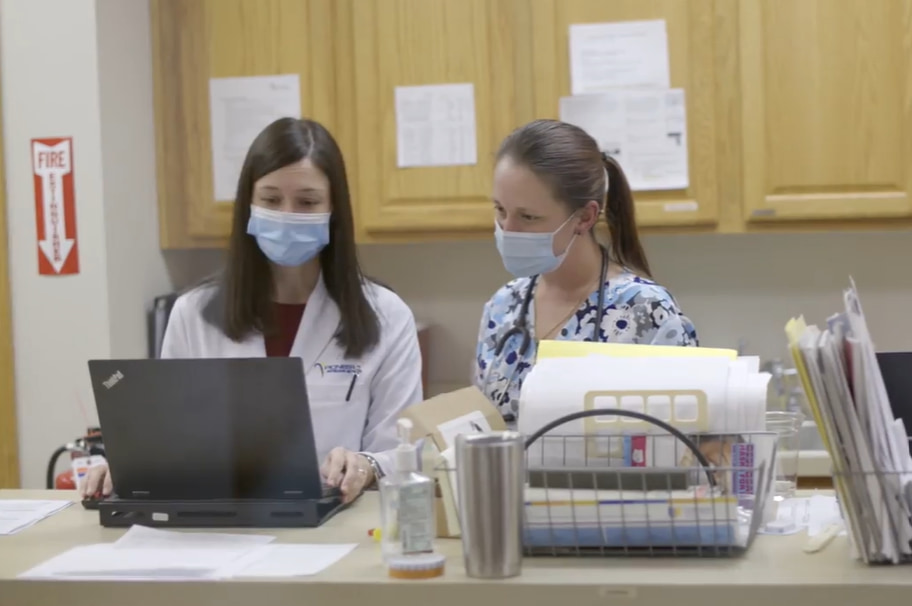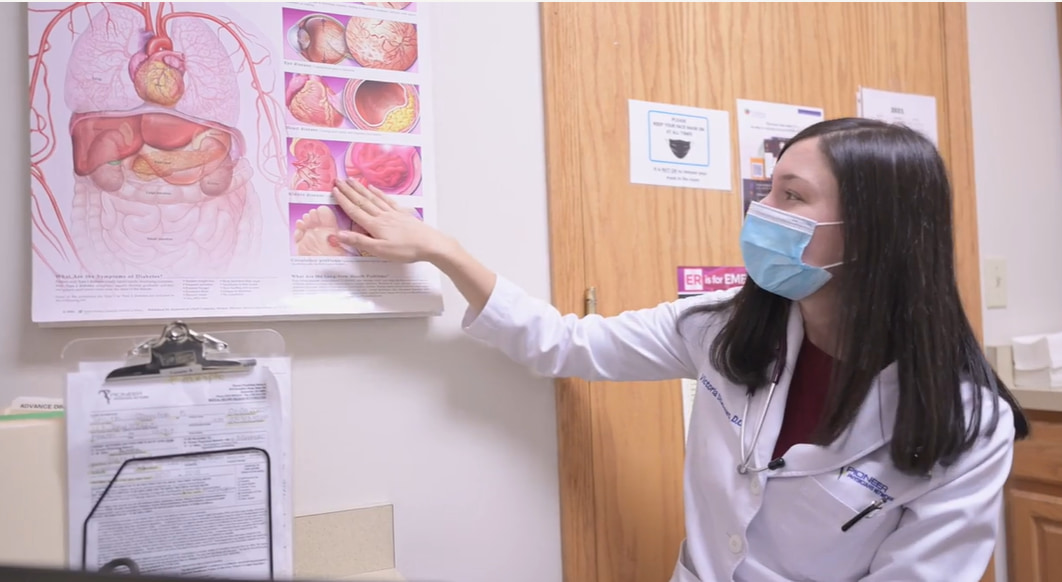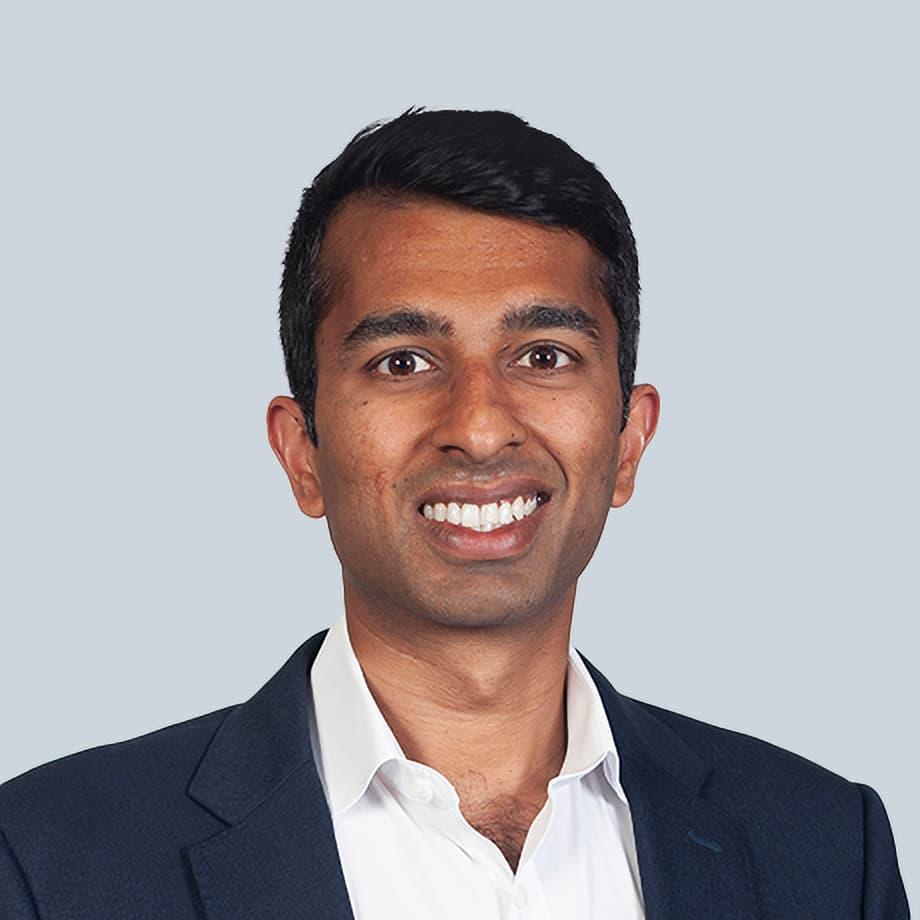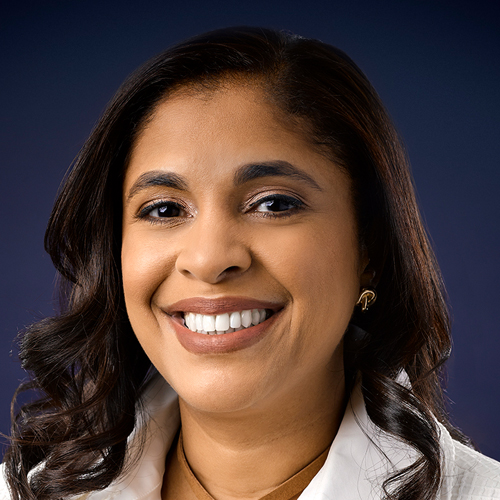As part of our new blog series, The Empowered PCP, agilon health is sitting down with powerful voices in the primary care physician (PCP) community to learn how they’re creating healthier communities through value-based care and to hear their perspectives on empowering other PCPs.
Today, we have another critically important item on our discussion agenda: How to create and foster more personally and professionally satisfying work environments, particularly for women PCPs. That’s why we sat down with Dr. Victoria DiGennaro, family physician at Pioneer Physicians Network in Cuyahoga Falls, Ohio, and a member of agilon health’s Female Physician Leadership Council, to hear her thoughts on achieving gender equity in the field of primary care and why women need a seat at the table.

Q: Dr. DiGennaro, achieving work-life balance is so important to people working in just about any field. What is your work-life balance like within the PCP space?
Traditionally, I think primary care has been a specialty where it’s challenging to be a full-time working mom because you’re spending so much time on so many different things and trying to take care of patients and take care of things at home—when you’re seeing 25 patients a day and trying to get it all done, it’s just not achievable.
However, how we do primary care with a focus on value-based care, it is completely the opposite. I have more time with my patients and I have less patients in a day, so I can really focus on those patients and getting all the work that I need done here in the office so that when I get home, my attention is fully devoted to my children and my family and I have a much better work-life balance.
Here’s just one example: My kids have a swim class that my husband takes them to and I pick them up. I used to have trouble making it to them on time—but just yesterday, I was able to see my patients in a timely manner and still get there and see my kids. It sounds silly, but those little moments are what matter. That’s what my kids are going to remember and that’s what I’m going to remember years from now.
Q: Say there’s an aspiring female physician who is looking to do primary care as her specialty. Has the advice you’d give someone in that situation changed over the years?
I don’t think so. I would say that my advice in general is to make sure that you understand your practice and how it functions and to take a bigger role in the management of that. I think too often, women have been left out of those conversations—that’s one of the reasons we created our Female Physician Leadership Council, because women haven’t spoken up and haven’t been at the table for those decisions. When they come to the table, it changes the conversation and it changes the perspective. So if you want to see things change, you have to be a leader, you have to find how you can do that. We in medicine have to figure out how to help them find the time to be a part of that conversation.
Q: Work-life balance is so often framed as a moms-only or women-only issue. Have you noticed that the dads in primary care medicine are speaking up more these days about work-life balance as well?
Yes, I think the conversation is becoming more about work-life balance for both moms and dads because the narrative has changed. Traditionally, this was a very male-lead profession and for the most part (although I’m not speaking for everyone), a lot of the male physicians would have wives that worked part-time or were stay-at-home moms. But now, men are much more a part of taking care of the children, taking care of the house, being part of that, and that’s wonderful. So it is more an issue of working parents as opposed to just working moms.
I think the difference is women do have a slightly different challenge in medicine because, again, it’s traditionally male-dominated. Women in medicine sometimes have to overcome biases and discrimination; the questions that are sometimes asked of me, or the expectations surrounding me, are very different than my male counterparts.
Q: Over the course of your career, are there certain biases that have surprised you the most?
I think the thing that has surprised me the most is just the fact that there is still a bias. When I was coming up in school and practicing and training, I just thought, “Half of all medical students now are women so we’re not going to have any issues,” but that hasn’t been the case.
Q: What sort of mentors did you have while coming up in your career and how were they most valuable to you as you?
I have been so blessed with wonderful, wonderful mentors. My office is actually a group of five doctors, four of us are women and one man, and they have trained me from when I was a medical student, through residency, and they actually recruited me to join the practice. And it’s just been such a wonderful experience to see really strong primary care women who also have been in leadership roles. They help me every day as I transition to become the new generation of leadership, and my male colleague has also been phenomenal.
We talk about the difference between mentorship and sponsorship: A mentor is going to kind of teach you the ropes, but a sponsor is actually going to push you forward and he has definitely done that trying to help get me into the conversation. So I think I’m blessed both ways to have a good group surrounding me.
Q: What issues do you most wish that all primary care physicians in leadership, men and women, would speak up about more on behalf of women or women-identifying PCPs? What type of advocacy for them do you think needs to be shouted the loudest right now?
We need to make a big push to have more women involved in guiding practice decisions and in leadership. You really need a seat at the table, because it’s hard to have an opinion and help guide the ship if you don’t even have a seat at the table so you can be having that conversation. So again, just empowering women, giving them opportunities.
I think we also talk about how value-based care and pay equity is a huge issue. I don’t remember the specifics exactly, but there was a recent study that showed female physicians make 28 percent less than their male counterparts—and that’s a direct comparison, that’s not to say one’s busier than the other, it’s that women just make less money. And so in order to address that through value-based care, as shown by some of agilon’s own research, you can take that difference down to less than 5 percent.
That’s a huge piece of it because if you’re working on the treadmill and trying to just keep going, going, going and then you’re not really reimbursed appropriately for the work that you’ve done, it’s hard to want to stay on the treadmill.
Also, this is not just an issue for women, I think it’s across the board with racial diversity, cultural diversity. We have to do a better job in medicine in general about bringing everybody to the table and finding opportunities to do that.

At agilon, we are committed to transforming primary care not just for patients, but for those who practice medicine as well. The good news is, as the agilon model proves, a system that’s built on the value of care rather than the value of fees improves quality of life for both doctors and patients alike. We encourage you to get to know our Total Care Model to see how agilon might benefit your patients, your practice and yourself.
Contact for media inquiries
[email protected]Up Next.

Blog Apr 13, 2022
Overcoming Physician Burnout With Value-Based Care
We all know that physicians face burnout, and that the past two years have only amplified their s...



